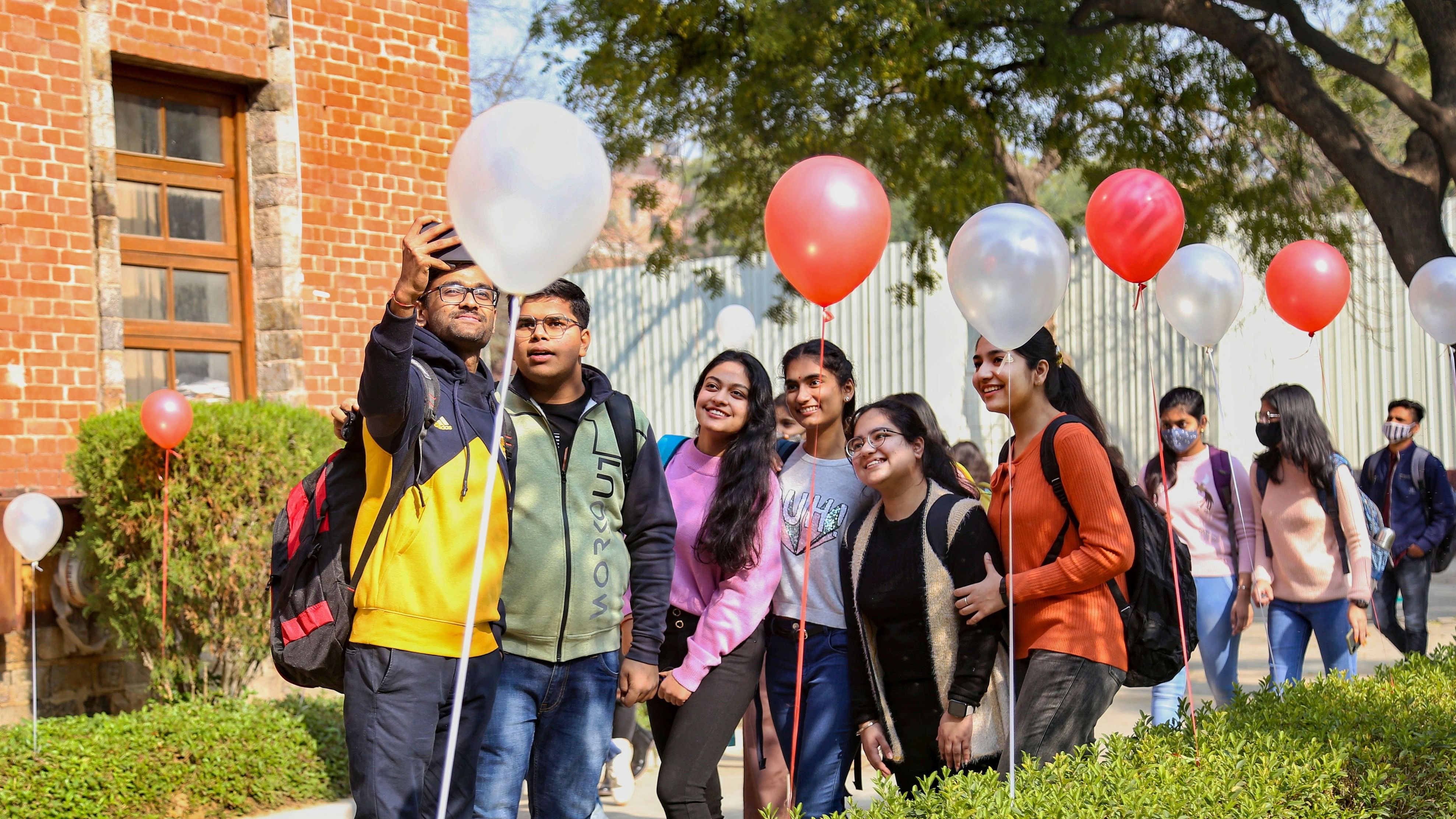
Students arrive to attend classes.
Credit: PTI photo
Learning is dynamic. Adjusting to the changes of the contemporary world holds the key to developing competencies among higher education learners. Higher educational institutions’ role is exemplary in holistically shaping learners’ aspirations and innate abilities, which is the true meaning of higher education.
Higher education is a platform where learners enhance their competencies and galvanise their passion. The higher educational institution ecosystem should address the concerns, channel the passion, and shape their emotional intelligence during the transition to higher education.
Higher educational institutions are responsible for developing generic skills among students, such as time management, communication, teamwork, and core abilities. Competency tests for students during the transition to higher education give a comprehensive outline of learners’ capacity and lacunae. Based on the outcomes, higher educational institutions could devise transformation plans for learners.
The scenario of Indian higher education has not progressed as it was supposed to in the post-independence era. The gross enrolment ratio (28.4 per cent according to the All India Survey on Higher Education) testifies to the present image.
The struggle to address the fundamental aspects of level graduation is alarming and raises serious concerns about the quality, competencies, and efficacy of higher education in India. The situation demands building the academic atmosphere to sustain the changing pace by holistically nurturing the generation.
Appreciating cross-culture
Higher educational institutions’ onus is to create a conducive ecosystem in cross-culture. The campus environment gives learners self-confidence during their stay. It also reflects the reputation of the institutions in terms of branding on the international platform.
Since India is encouraging foreign institutions to establish campuses in India, Indian higher educational institutions should strive to strengthen their academic robustness, value system, and cultural ambience to take them to the next level. Learning culture in the higher education campus will have a greater impact on societal happenings.
How to build competencies
Academic activities are a foundation for building a career. A holistic approach will drive the learners to enhance their proficiency and competency, which helps to strengthen their employability skills right from the transition stage.
Higher educational institutions are responsible for identifying the learners’ potentialities during the transition, which helps them understand their diverse passions. The learners’ knowledge and keenness will give insight into the HEI’s preparation of the Institutional Development Plan (IDP) for the smooth and effective implementation of curriculum, co-curriculum, and extracurricular activities.
Rigorous monitoring of IDP and its regular review will provide concrete results in progress and address learners’ challenges from time to time. Transition to higher education will not change unless the academic seriousness of higher educational institutions improves.
The following holistic approach will set the drive for building the learner’s competencies.
The knowledge test of students will give a comprehensive insight into the learner’s knowledge and guide them to address the required area for their betterment.
The knowledge test should align with the cognitive, affective, and psychomotor domains.
Revise Bloom’s Taxonomy pyramid and give a road map to channel the learner’s interest into the right path.
Academic and industry interfaces that bridge the gap from theory to practice will improve learning and employability skills. They will also guide teachers in revisiting their learning and teaching in the classroom.
The teacher’s course plan should integrate the curriculum to develop the 4Cs: Communication, Collaborative Learning, Critical thinking, and Creation.
Review meetings on a regular base is the ultimate success of the IDP, and understanding the duty of HEI.
The challenges
A negligible number of higher educational institutions are performing with structured plans in the transition to higher education. However, many organisations do it more for documentation purposes.
The organisations’ lack of quality teaching fraternities and mediocre futuristic thinking are a setback for higher educational institutions. Substandard infrastructure facilities are another hamper for academic performance.
If the same attitude continues in higher educational institutions, they will continue to produce certificate graduates who are not job-ready. A day might even come when the learner fails to get employability opportunities due to incompetencies and demands the HEI to return his/her paid graduation fees.
HEIs malfunction because we have compromised on quality and lack accountability among the people at the helm. Sycophancy from top to bottom is ruining the prospect of an aspirational, young India.
(The writer is an associate professor at a Bengaluru-based educational institute)